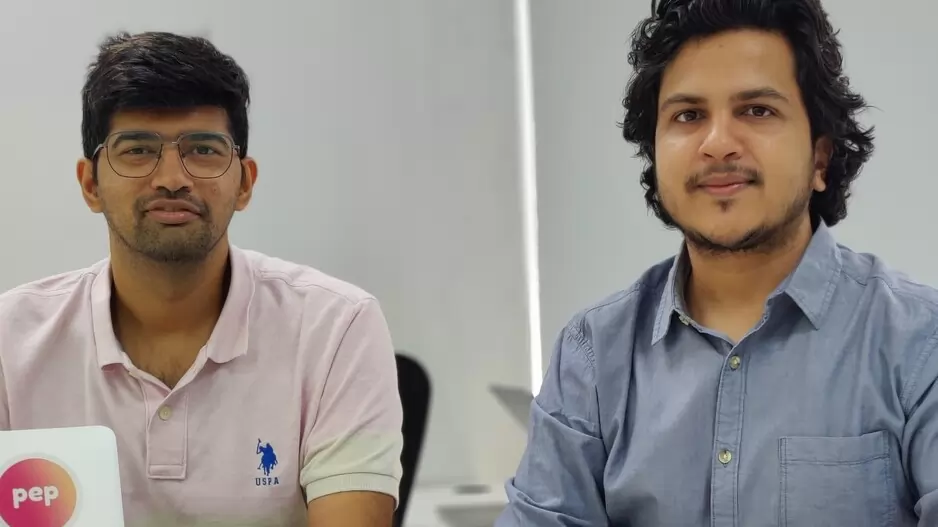With the boom of content creation, ranging from Instagram reels, TikToks, or Youtube shorts; there barely remains any media platform that does not thrive on the content shared by its users. With the added factor of generative AI in this field, content creation, no matter how meaningful or meaningless, becomes even easier. To tackle this mushrooming of pointless content, online startup Pep provides a perfectly curated marketplace with credible and categorized content. The startup recently raised $2.5 million in seed funding backed by VC firm India Quotient.
“Very excited to back Nav and Swapnil again to build the Amazon of Digital Goods and Services. With the fast-paced digitization of the world around us, we see a huge Total Addressable Market (TAM) waiting to be unlocked,” shared India Quotient’s Madhukar Sinha.
Pep builds a mobile-centric online marketplace that caters specifically to content creators. It allows them to discover, sell, or buy a wide range of contents and services. The recent funding round was also joined by angel investors like Kunal Shah (CRED), Vidit Aatrey and Sanjeev Barnwal (Meesho), and Farooq Adam (Fynd). Furthermore, the round also saw participation from Parag Bhide (Trilegal), Sambhav Mehrotra and Sridhar Subramanian (StartupMovers), Ravindra Yadav (data scientist), and Sargun Gulati (crypto expert).
With the fresh capital, the startup aims to focus on product development, and target more branding initiatives. Additionally, it also It plans to expand their customer and employee base.
A platform backed by experienced hands
Pep was established by IIT alumni Nav Agrawal and Swapnil Upadhyay in early 2023. Its main aim was to work as a one-stop shop platform for users; they could explore, buy, or sell content and services across a wide range of formats, like live sessions, one-on-one consultations, videos, pdfs, audios, and much more. Moreover, the platform’s extensive categories; which range from cooking, baking, DIY, fashion, health and fitness, personal finance, and more, make it more user-friendly.

Founder Nav Agrawal boasts years of entrepreneurial experience and has built two startups, Clip and Sendd. As an old hand, with years of experience navigating the startup ecosystem, he created Pep to establish a community-driven content marketplace. Agrawal understood that the wide-spread content nowadays works as both a bane and a boon; often times its proliferation actually stunts quality content discovery for customers. To target this very issue, he curated a platform that utilized the powers of personalized machine learning algorithms and enabled the discovery of tailored content at affordable prices.
“With our mobile-only approach, we enable people to sell content in a few clicks, directly monetize their knowledge, and reduce dependency on conventional ad-based income. Using personalised machine learning algorithms, our consumers discover and buy the right set of content at affordable prices with a no-regret mindset,” said Agrawal in an interview.
Due to his enriching time with his previous startups, Clip and Sendd, Agrawal learned plenty about social spaces and how they operate. This knowledge helped him build a horizontal marketplace that stood on three foundational pillars: trust, discovery, and pricing. Pep provides user-generated content supported through micro-sources and micro-payments, which range from as low as Rs. 29 to Rs. 2000.
A hopeful and profitable road ahead
Pep has already garnered a plethora of customers who love the platform and are doing repeat transactions. With this encouraging traction, it plans to scale up their product offerings and grow the brand in the upcoming years. Founder Nav Agrawal disclosed in an interview with Inc42 that he expects the platform to notch more than 10 million transacting users over the course of the next 2–3 years.
The 11-member startup aims to focus on expanding its platform all across India. It hopes to scale the platform beyond Tier I cities and move towards Tier II and Tier III cities in the near future. With this intention, the platform plans to undertake category expansion over the course of the next six to eight months. Agrawal is looking to build a global content marketplace as a long-term goal and set up operations in the US and Indonesian markets. On the question of scale and profitability, Pep will continue to focus on growth over anything else.
The startup’s monetization model follows a pure-play commission based on the category. These charges range anywhere between 20 and 50%, depending on the category. The distinction is drawn between content that requires raw materials, such as gourmet cooking, and the quality of the expert.
While the startup exists in a competitive space; the founders believe that their platform’s curation methodology and price standardisation work well in their favour. “Micro-courses at micro prices are our key USP,” adds Agrawal. India’s 46.7 crore internet users make it a sought-after digital economy and social media market. Pep focuses on user-generated content as opposed to industry giants like Skillshare, OnlyFans, and Domestika, which depend on professionally-made content.
